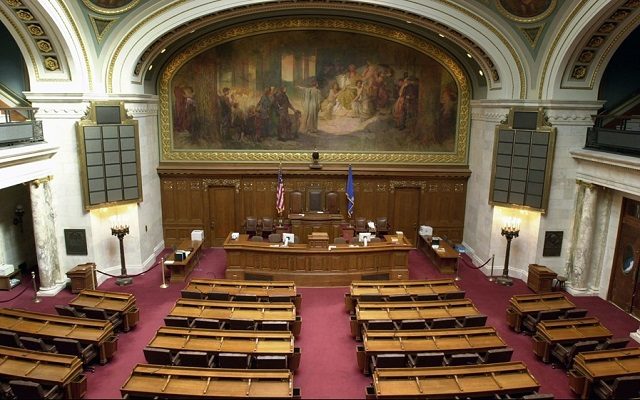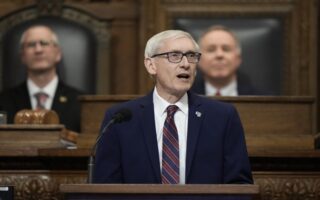Wisconsin Assembly to vote on limits for unemployment aid

MADISON, Wis. (AP) — People in Wisconsin would receive fewer unemployment benefits and face stricter qualification requirements under a package of bills slated for votes in the state Assembly on Tuesday.
The eight Republican-backed measures follow a statewide April election in which more than three-quarters of voters supported a nonbinding ballot question saying they believe able-bodied adults should have to look for work to receive government assistance.
Democratic Gov. Tony Evers vetoed nearly identical legislation in his first term, and it’s likely he will do the same this time around if both the Republican-controlled Assembly and Senate pass the measures.
Unemployment recipients in Wisconsin already must perform four work-search activities each week. Under the bills that will be voted on Tuesday, employers would be able to report recipients who decline or don’t show up to an interview. People who have been reported multiple times and don’t have good reasons for declining or missing interviews could have their benefits rescinded.
Another measure would tie the number of weeks someone can receive unemployment benefits to the statewide unemployment rate. With current rates under 3%, recipients would be limited to 14 weeks of benefits. The existing standard of 26 weeks of benefits would only apply if rates rise above 9%, which hasn’t happened since the 2008 financial crisis.
Other proposals in the package would enact stricter identity verification checks for unemployment benefits, prohibit local governments from using taxpayer money to create guaranteed income programs and require the Department of Health Services to review every six months the eligibility of people participating in Medicaid programs reserved for low-income people, family caretakers and pregnant women.
Major conservative business lobbyists including the National Federation of Independent Business and Opportunity Solutions Project have endorsed many of the bills, while local unions and the state League of Women Voters oppose them.






